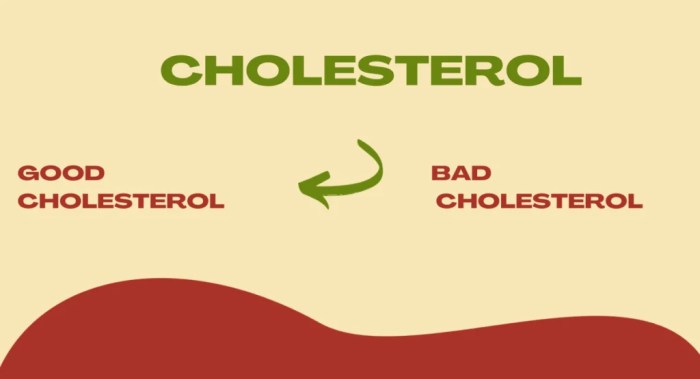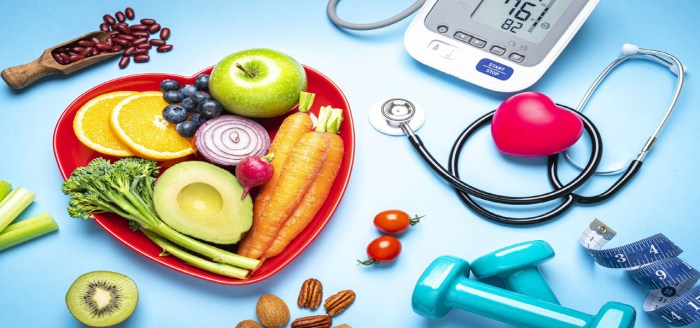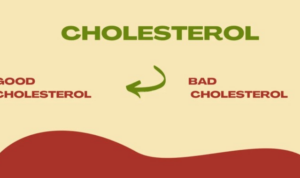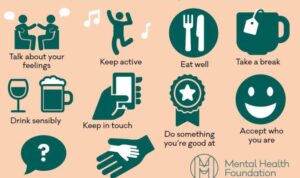Cholesterol management is crucial for a healthy lifestyle, so buckle up and let’s dive into the ins and outs of keeping your cholesterol levels in check. From understanding what cholesterol is to exploring dietary strategies and treatment options, this comprehensive guide has got you covered.
Overview of Cholesterol Management
Cholesterol is a waxy substance found in the cells of our body and is essential for building healthy cells. However, having high levels of cholesterol can increase the risk of heart disease and other health issues. Managing cholesterol levels is crucial for overall well-being to maintain a healthy heart and reduce the risk of cardiovascular problems.
Types of Cholesterol
- LDL (Low-Density Lipoprotein): Known as “bad” cholesterol, high levels of LDL can lead to plaque buildup in the arteries, increasing the risk of heart disease.
- HDL (High-Density Lipoprotein): Referred to as “good” cholesterol, HDL helps remove LDL from the arteries, reducing the risk of heart disease.
- Total Cholesterol: The sum of LDL, HDL, and other lipid components in the blood. Keeping total cholesterol levels within a healthy range is important for heart health.
Risk Factors for High Cholesterol: Cholesterol Management

High cholesterol levels can be influenced by various factors, including lifestyle choices, genetic predispositions, age, and gender.
Lifestyle Factors Contributing to High Cholesterol Levels
- Poor Diet: Consuming foods high in saturated fats, trans fats, and cholesterol can raise cholesterol levels.
- Lack of Physical Activity: Sedentary lifestyles can contribute to weight gain and higher cholesterol levels.
- Smoking: Tobacco use can lower HDL (good) cholesterol levels and raise LDL (bad) cholesterol levels.
- Excessive Alcohol Consumption: Drinking too much alcohol can lead to higher triglyceride levels, a type of fat in the blood.
Genetic Predispositions to High Cholesterol
Some individuals have a genetic predisposition to high cholesterol, known as familial hypercholesterolemia, which can lead to elevated cholesterol levels regardless of lifestyle choices.
Age and Gender Influence on Cholesterol Levels
- Age: Cholesterol levels tend to increase with age, as the body’s metabolism changes and lifestyle habits may accumulate over time.
- Gender: Before menopause, women typically have lower total cholesterol levels than men. However, after menopause, women’s cholesterol levels may increase.
Dietary Strategies for Managing Cholesterol
To effectively manage cholesterol levels, incorporating specific foods into your diet is crucial. By focusing on heart-healthy options and being mindful of the types of fats you consume, you can make a positive impact on your cholesterol levels.
Foods to Lower Cholesterol Levels
Include foods rich in soluble fiber such as oats, apples, and beans, which can help reduce LDL cholesterol levels.
- Walnuts and almonds are excellent choices as they contain healthy fats that can lower LDL cholesterol.
- Fatty fish like salmon and mackerel are high in omega-3 fatty acids, which are beneficial for heart health.
- Adding plant sterols found in fortified foods like margarine can also help lower cholesterol levels.
Role of Dietary Fats in Cholesterol Management
Not all fats are created equal; it’s essential to focus on healthy fats and limit saturated and trans fats.
- Replace saturated fats with unsaturated fats like olive oil, avocados, and nuts to improve cholesterol levels.
- Avoid trans fats often found in processed foods, fried foods, and baked goods to reduce LDL cholesterol.
- Limit sources of saturated fats like red meat, full-fat dairy products, and tropical oils to maintain a healthy cholesterol profile.
Heart-Healthy Diet for Cholesterol Control
Adopting a heart-healthy diet can significantly impact cholesterol levels and overall cardiovascular health.
- Focus on a variety of fruits, vegetables, whole grains, and lean proteins to support heart health.
- Incorporate foods rich in antioxidants like berries, leafy greens, and dark chocolate to protect against heart disease.
- Choose low-fat dairy options and opt for lean protein sources like poultry, fish, and legumes to maintain a balanced diet.
Physical Activity and its Impact on Cholesterol

Regular physical activity plays a significant role in managing cholesterol levels. When combined with a healthy diet, exercise can help lower “bad” LDL cholesterol and raise “good” HDL cholesterol.
Recommended Amount and Type of Physical Activity
- It is recommended to engage in at least 150 minutes of moderate-intensity aerobic activity or 75 minutes of vigorous-intensity aerobic activity per week.
- Incorporating strength training exercises at least two days a week can also be beneficial for cholesterol management.
- Activities like brisk walking, running, swimming, cycling, and dancing are excellent choices for improving cholesterol levels.
Benefits of Regular Exercise in Controlling Cholesterol
- Regular exercise can help increase HDL cholesterol levels, which acts as a scavenger, removing LDL cholesterol from the arteries.
- Physical activity can also improve overall cardiovascular health, reducing the risk of heart disease and stroke associated with high cholesterol levels.
- Exercise contributes to weight management, which is crucial for maintaining healthy cholesterol levels.
Medication and Treatment Options
When lifestyle changes alone are not enough to lower cholesterol levels, healthcare providers may prescribe medications to help manage high cholesterol. These medications work in different ways to reduce cholesterol levels in the blood.
Common Medications for High Cholesterol
- Statins: These are the most commonly prescribed medications for high cholesterol. They work by blocking a substance your liver needs to make cholesterol, thus helping to lower the levels in your blood.
- Ezetimibe (Zetia): This medication helps reduce the amount of cholesterol absorbed by the body.
- PCSK9 inhibitors: These medications help the liver remove LDL cholesterol from the blood.
Potential Side Effects of Cholesterol-Lowering Drugs
- Statins: Common side effects may include muscle pain, liver damage, and an increased risk of diabetes.
- Ezetimibe: Side effects may include diarrhea, joint pain, and fatigue.
- PCSK9 inhibitors: Side effects may include injection site reactions, flu-like symptoms, and allergic reactions.
When Medication is Necessary for Cholesterol Management
- Medication is usually recommended for individuals who have not been able to lower their cholesterol levels enough through lifestyle changes alone.
- Patients with a history of heart disease, very high cholesterol levels, or other risk factors may also be prescribed medication to help manage their cholesterol.

